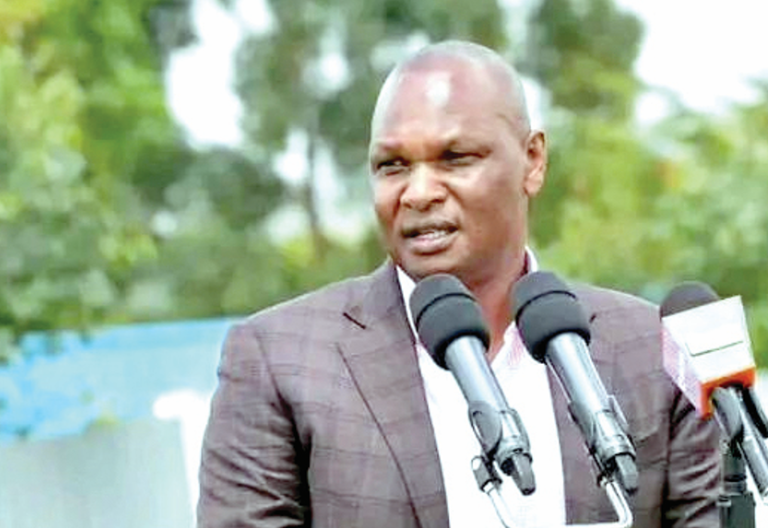President William Ruto’s long-serving aide, Farouk Kibet, has responded sharply to recent accusations by former Deputy President Rigathi Gachagua, who alleged that Farouk and a Rift Valley MP are misleading the Head of State particularly on the contentious issue of school capitation.
While on a recent tour in the United States, Gachagua, now the leader of the newly launched Democratic Change Party (DCP), claimed that President Ruto was being misadvised by close allies, singling out Farouk and an unnamed Rift Valley legislator. He linked their alleged influence to the government’s decision to reduce capitation funds for public secondary schools, a move that has sparked nationwide debate.
Farouk, in a strongly worded rebuttal, dismissed Gachagua’s remarks as baseless and politically motivated. “Your remark on shares got you out of government,” he said, referencing Gachagua’s controversial ‘shareholding’ comments that many analysts believe contributed to his fallout with the Ruto administration.
“We are focused on transforming the lives of Kenyans a responsibility you failed to deliver as Deputy President. We won’t bow down to your theatrics and divisive remarks,” Farouk stated.
The capitation debate has continued to dominate national discourse, especially amid rising concerns over inadequate school funding. However, Treasury Cabinet Secretary John Mbadi came to the defence of the Executive, clarifying that the shortfall in school capitation is a result of parliamentary budgeting constraints, not misadvice within the Executive.
Speaking during a thanksgiving event in Suba South, Mbadi noted, “We disbursed the whole amount allocated in the budget, but still, it is not enough. If you divide the current budget by the number of students in secondary schools, you only get about Sh17,000 per student. That has been the reality even during President Uhuru Kenyatta’s tenure.”
Gachagua, who has become an increasingly vocal critic of the Kenya Kwanza government since his ouster, appears determined to build political capital with his new party. But the sharp response from Farouk underscores the growing tension between current and former regime insiders further exposing the deepening political rift ahead of 2027.

